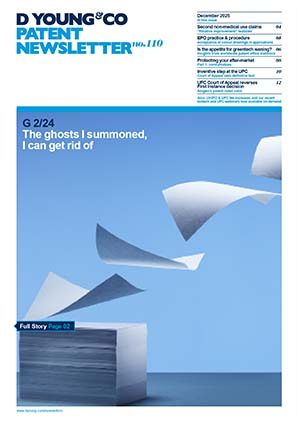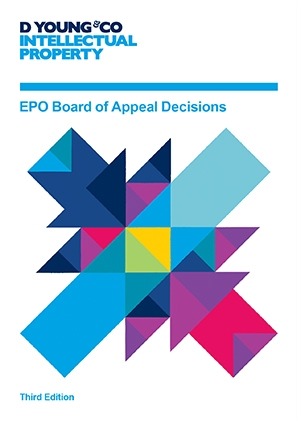T 2277/19: approval of the wrong text has no cause of action
Those familiar with the European Patent Office’s approach to patent applications will be familiar with the procedure under Rule 71(3) in which the examining division sends the applicant a copy of the text proposed for grant. Only once the applicant has approved this text is the European patent then granted. In T 2277/19 the Board of Appeal held that approval of an erroneous text is not correctable on appeal.
Among the EPO requirements for an appeal are that “Any party to proceedings adversely affected by a decision may appeal”. This appeal focussed on whether the applicant was or was not adversely affected by the decision to grant that followed the accidental approval of an erroneous text.
In a previous Board of Appeal decision (T 1003/19) it had been held that an applicant who inadvertently approved a text with several pages of figures missing was adversely affected by the decision to grant. In that earlier case the reasoning of the Board of Appeal supported the applicant’s position that it had never intended to approve deletion of most of the figures. Also, although the text for grant included only the one figure, the indication of amendments by the examining division in the communication under Rule 71(3) did not mention any changes to the figures (but it did list just a single sheet of figures). Specifically, the Board of Appeal in that earlier case gave reason that “The appeal is admissible. The appellant is adversely affected. The granted version of the patent corresponds neither to a text submitted by the appellant (see below, point 2.2) nor to a text agreed by it (point 2.3), nor to a text deemed to have been approved by it (point 2.4). There is, therefore, a discrepancy between the appellant’s request and the decision of the examining division.”
In the present case, the specific error was that the patent granted with figures that had been deleted during prosecution. The text proposed for grant included amended figures sheets 1 to 7 and original figures sheets 8 to 18 (which had been due to be deleted). The same pages were indicated in the listing of pages in the communication under Rule 71(3). The applicant approved the text as proposed, subject to some corrections in the description.
The Board of Appeal held that “the appeal is not admissible since the appellant is not adversely affected by the decision to grant.”
Specifically the Board of Appeal found that there was no discrepancy between the text proposed for grant and the communication under Rule 71(3). The Board of Appeal also noted that the applicant approved the text proposed for grant such that “the examining division legitimately expected the applicant to have checked and verified the Druckexemplar, in particular since the applicant had requested some amendments to the text intended for grant.”
The Board of Appeal also commented on earlier case T1003/19, noting that in its view “there is no legal basis in the European Patent Convention for a distinction between the text referred to in a communication under Rule 71(3) EPC and that reflecting what the examining division actually intended” and then went on to comment “in the board’s judgement, Article 71(3) EPC thus imposes on the applicant a duty to check and verify this text. The fact that an applicant does not exercise its right to request amendments under Rule 71(6) EPC can therefore only be interpreted as approval of the communicated text, i.e. the text intended for grant. Whether the applicant notices a possible error has no effect on the fact that this approval is binding.”
This is an area without much relevant case law, but nonetheless an important part of the EPO grant procedure. Thus we are now faced with two very contradictory decisions, having only slightly different facts to distinguish them, and the stricter decision specifically criticising the reasoning of the more lenient.
Accordingly, we strongly recommend that an applicant receiving the text proposed for grant should check carefully that the text is the one which they wish to approve.
For further information in relation to this article, or in terms of the finer intricacies in implementing the above procedures, please do not hesitate to get in touch with your usual D Young & Co contact.
European Patent Convention, Article 107 [120]
Persons entitled to appeal and to be parties to appeal proceedings.
T 1003/19
Board of Appeal decision T 1003/19: failure to communicate the text intended for grant - missing drawing sheets.
Read more

